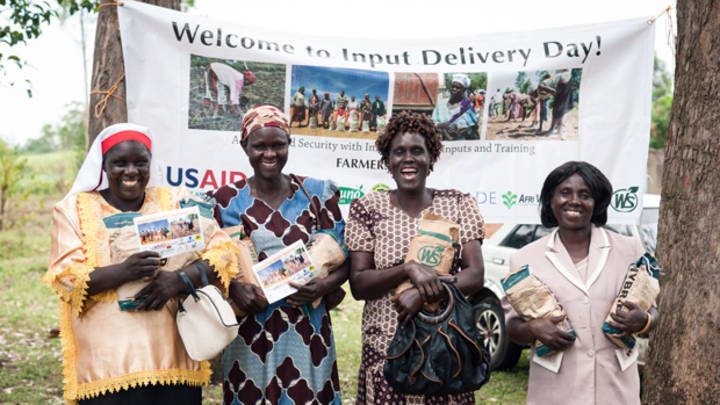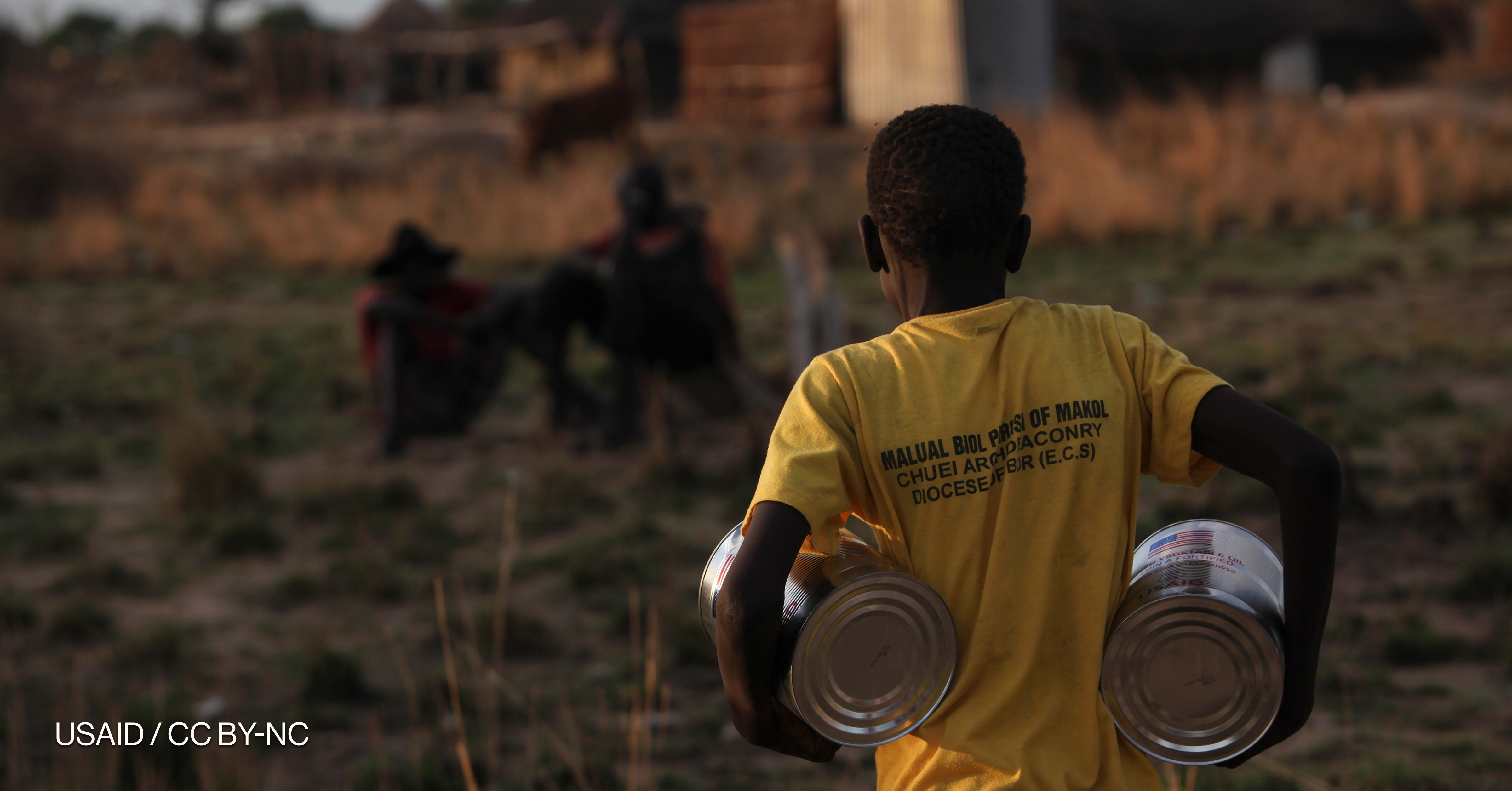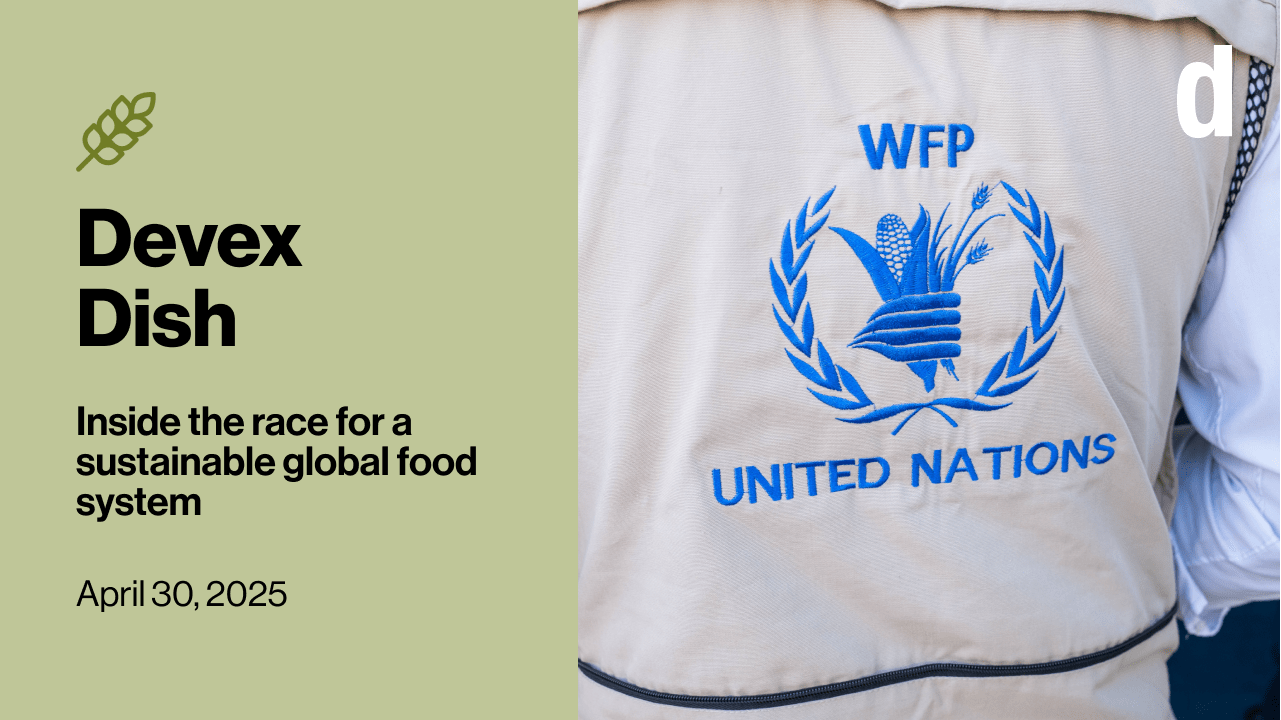
After five years on the job, Rajiv Shah’s term as U.S. Agency for International Development administrator has come to a close.
The former medical doctor-turned-development leader’s legacy is likely to include his hard-charging, “whole-of-government” approach to tackling extreme poverty around the world. One program, Feed the Future, has successfully positioned smallholder farmers and agricultural development front and center in the fight against poverty.
But many in the development community are wondering: Will the next administrator be a champion for smallholder farmers?
When Shah took the helm at USAID in late 2009, Feed the Future was just an idea, born of a set of promises made during the 2009 G-8 summit. In the wake of the 2007-2008 global food price crisis, the U.S. government awakened to the idea that hunger can only be overcome with long-term investments in smallholder farmers and agricultural development. The government understood that 70 percent of the poorest people on the planet work in agriculture. To raise rural incomes, the world needed to invest in activities that would help farmers become more productive.
Since its inception, Feed the Future has benefited from strong leadership. It’s a presidential initiative, firmly backed by U.S. President Barack Obama. And it’s had an experienced captain at the helm — Shah’s background and expertise as undersecretary of research, education and economics and chief scientist at the U.S. Department of Agriculture and as former director of agriculture development at the Bill & Melinda Gates Foundation have been indispensable.
So far, Feed the Future has helped move 40 million people out of poverty, supported government nutrition programs that reached 12.5 million children in 2013, and connected international companies to local entrepreneurs to generate more than $10 billion of investments. For smallholder farmers to remain at the heart of the global development conversation, the next administrator will need to continue to beat the drum on investing in agriculture.
See more stories on Rajiv Shah:
● 5 parting thoughts from Rajiv Shah
● Rajiv Shah's USAID legacy
● How much difference can a USAID administrator make?
● Who will be the next USAID administrator?
● The end of an era for USAID
One Acre Fund, the organization I work for, has benefited from USAID’s focus on agricultural development. We offer farmers a comprehensive service bundle of seed and fertilizer, financing, agricultural training and market facilitation. In 2012, we received funding through Feed the Future to support the expansion of our Kenya operation. That funding helped us expand our operations to serve more than 200,000 smallholder farmers across East Africa by the end of 2014. On average, the farmers we work with are able to double their productivity in just one season and increase their income by 50 percent on every planted acre. Because farmers pay for all the products and services they receive from One Acre Fund, $1 of donor funding generates an additional $4.50 of income for a smallholder farmer.
By building for scale, One Acre Fund is poised to serve 1 million farmers by 2020, which would make us the largest network of smallholder farmers in Africa. But there are hundreds of millions of smallholder farmers who need access to the same products and services. Long-term donor support from organizations like USAID is critical to spur the growth of organizations that target smallholder farmers, and the agriculture ecosystem to support those organizations.
For instance, researchers have made great scientific breakthroughs that can help farmers increase their productivity, but many of the new seed varieties and agricultural technologies they have developed are not accessible to the farmers who need them most. By partnering with organizations that directly serve smallholder farmers, organizations like USAID can ensure that new and existing research is adopted and scaled to reach even the most remote smallholder farmers.
Around the world, there are still more than 800 million people who suffer from hunger and 165 million children who have become stunted from undernutrition. We agree with President Obama that the United States has a “moral obligation to lead the fight against hunger and malnutrition.” In order to accomplish that, innovative approaches to scaling solutions in agriculture must be central to USAID’s programs and policies.
Shah proved that setting strong organizational priorities within USAID starts at the top. We hope Shah’s successor is as committed to Feed the Future and global food security as he was.
What does the next USAID administrator need to do to sustain the momentum for Feed the Future? Have your say by leaving a comment below.
Join the Devex community and access more in-depth analysis, breaking news and business advice — and a host of other services — on international development, humanitarian aid and global health.








